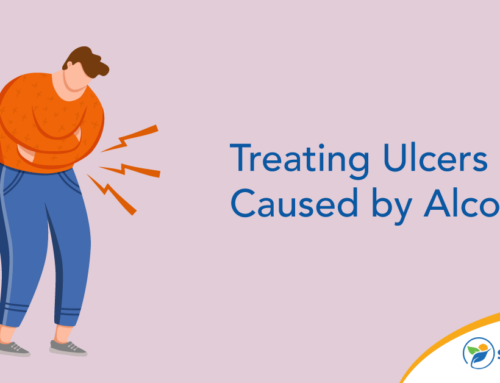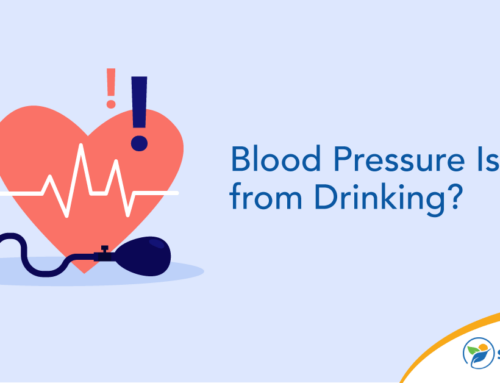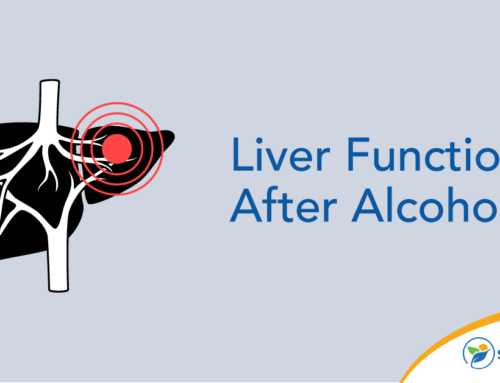Fetal alcohol syndrome (FAS) is a serious condition that can impact an individual their entire life. The Centers for Disease Control and Prevention (CDC) estimates that between 800 and 8,000 babies are born with FAS annually in the United States. However, that number jumps to 40,000 per year for fetal alcohol spectrum disorders (FASD). But what is FASD? Keep reading for a complete overview of these conditions, what causes them, their effects and treatment options.
What Are FAS and FASD?
Fetal alcohol syndrome is a permanent congenital condition that occurs when a fetus has been exposed to excessive alcohol during pregnancy. Due to the mother’s alcohol intake during pregnancy, the child can be born with side effects that typically include mental development, behavioral issues and physical issues.
FAS is just one condition under a broad category known as fetal alcohol spectrum disorders. FASD refers to several conditions that can come as a result of drinking during pregnancy, including:
- Fetal alcohol syndrome (FAS)
- Partial fetal alcohol syndrome (pFAS)
- Alcohol-related birth defects (ARBD)
- Alcohol-related neurodevelopmental disorder (ARND)
- Neurobehavioral disorder associated with prenatal alcohol exposure (ND-PAE)
FASDs are caused by a mother drinking during pregnancy, as the alcohol in the mother’s blood passes through the umbilical cord to the child. When alcohol reaches a baby’s bloodstream, it can cause brain and organ development issues.
Is Drinking During Pregnancy Ever Safe?
The CDC states that there is no safe amount or safe time to drink during pregnancy. Alcohol can be damaging even in the early weeks of pregnancy, when a woman may not even know she’s pregnant. Some people are under the impression that only excessive binge drinking causes FASDs. This perception may come from a handful of studies that suggest very light drinking during pregnancy can be safe.
However, many of these studies are flawed or haven’t been replicated in larger focus groups. Most health care and government entities agree that even a few drinks during pregnancy can have a detrimental impact. In fact, one study found that after just one to two glasses of wine, the child’s breathing is almost completely repressed, which can be a sign of fetal distress.
It’s also important to note that all types of alcohol — including wine, beer, ciders and hard liquor — are harmful to the fetus.
FASDs are entirely avoidable if women don’t drink alcohol during their pregnancy. The more a woman drinks throughout her pregnancy, the higher the risk of FASDs occurring in the baby. Of course, a woman doesn’t always know she’s pregnant — especially in the early weeks of the first trimester. To reduce the risk of FASDs, some experts recommend avoiding alcohol as soon as a woman starts trying to conceive.
Childhood Symptoms of FAS
In severe cases of FAS, the birth defects from alcohol are apparent at birth. However, it’s far more common for the physical features of fetal alcohol syndrome to appear between the ages of eight months and eight years.
The physical features and symptoms of fetal alcohol syndrome that appear from childhood are:
- Small head size
- Small eye opening
- Thin upper lip
- Flat midface
- Low body weight
- Abnormal facial features (i.e., low nasal bridge)
- Short nose
- Shorter than average height
- Minor ear anomalies
- Vision and hearing problems
- Joint, limb and finger deformities
- Heart, kidney and bone defects
Many children with moderate to severe FAS have a similar “look” and structure to their facial profile.
Along with the physical features, FAS typically causes developmental and behavioral symptoms as well. Some of these are:
- Hyperactive behavior
- Poor coordination or balance
- Learning disorders and delayed mental development
- Poor memory
- Difficulties in school
- Attention difficulties
- Speech delays
- Difficulty understanding consequences, poor reasoning and problem-solving
- Low IQ
- Mood instability
Diagnosis of FAS
FAS and FASDs can be challenging to diagnose because there isn’t a test to identify the condition. FASDs occur on a spectrum and can present incredibly differently from one person to the next. Additionally, many of the behavioral and developmental problems associated with FASDs could also be a sign of another condition, such as ADHD or Williams Syndrome. In one tiny study, a shocking 80% of general pediatricians did not correctly diagnose an FAS case when presented with one.
Individuals who know that a mother drank during pregnancy should look for signs of FASDs in the child. If the pregnancy history is unknown, the child may not be diagnosed until they start to show behavioral and developmental problems later on in childhood.
Adult Signs of FAS
As mentioned, fetal alcohol syndrome presents itself as a spectrum. The more the woman drank during pregnancy, the more severe symptoms of FAS can be in the individual. Some individuals can function and live independently, while others will require supervision and assistance their whole lives.
Fetal alcohol syndrome symptoms in adults are:
- Poor memory
- Inability to be organized
- Difficulties performing at school or work
- Poor academic performance
- High-risk behavior that leads to problems at school (suspensions, expulsions) and problems with the law (getting arrested)
- Substance abuse addiction
- Sexually deviant behavior
- Need for dependent living
Treatment Options for FAS
Fetal alcohol syndrome is a permanent condition without a cure. Instead, individuals can get help managing some of the symptoms they experience from the condition. For example, those with learning disabilities can get additional assistance at school, and those with behavioral issues can go to therapy to learn coping techniques. Research shows that early intervention and treatment can help improve a child’s overall development.
As FAS can present differently in each child, treatment needs to be evaluated, planned and monitored on an individual level. The earlier FAS is diagnosed and treatment is started, the better the potential outcomes for the child.
Importance of Prevention of FAS
FAS can have a devastating, lifelong impact on a child as there’s no cure. As a result, women must do all they can to avoid all alcohol throughout their pregnancy. If a woman can’t abstain from alcohol, she should seek professional help immediately. Programs are available that can help pregnant women stay sober so they can have a healthy baby.
Get Treatment for Alcohol Addiction at Sunlight Recovery
Women who are pregnant or considering getting pregnant should understand the importance of seeking help for their alcohol addiction. While addiction can feel all-encompassing, getting help and having a healthy pregnancy is possible. Sunlight Recovery is a judgment-free treatment facility that helps people on the road to recovery. Contact us today at (888) 402-3647 to find out how our alcohol addiction programs can help you.






